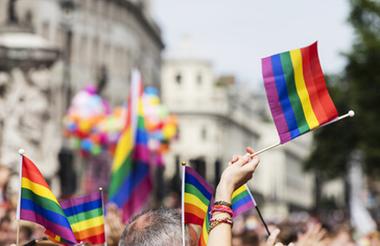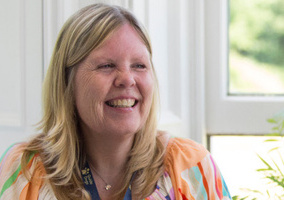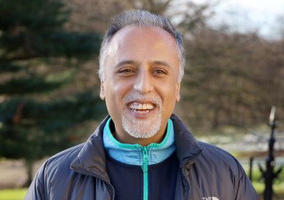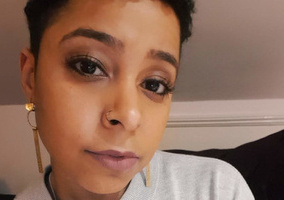Kevin Taylor-McKnight set up the campaign groups Queer Trustees and Charity So Straight after working in the charity sector for more than 25 years. Despite being employed in the “benevolent sector” he has experienced homophobia in the workplace numerous times.
Taylor-McKnight spoke about the sometimes negative reactions he had experienced when bringing up these incidents with previous employers.
For example, one person had said homophobia is an issue in wider society, and asked 'what do you want me to do about it?'
"It was such a negative response," explains the campaigner.
He said it is for leaders of charity organisations to "set the culture" within the organisations they lead. It is a leader's responsibility, and they are in a position to do something about it, he explains.
These experiences motivated him to set up the LGBT+ campaign groups to help ensure those who are struggling with homophobia in the charity sector have somewhere to go for support, advice and allyship.
Around the same time Taylor-McKnight set up Queer Trustees, the Black Lives Matter movement was gaining traction and putting racial diversity and anti-racism at the forefront of equality conversations. Campaigns like CharitySoWhite were set up to ensure the benevolent sector was living up to its name. For Taylor-McKnight this highlighted the need for a campaign support group for LGBT+ individuals in the sector.
'When you prioritise one minority group, you're automatically deprioritising others'
“Nobody within our sector seemed to be at that time, and still now to a certain extent, comfortable with talking about LGBTQIA inclusion and talking about diversity issues that affect queer people,” he says.
This made him determined to put queer people on the diversity agenda. His first campaign, Queer Trustees, has amassed over 1,000 followers on Twitter and provided support to various charities on the topic of making trustee boards more inclusive.
Taylor-McKnight set up a second campaign, Charity So Straight, a couple of months ago and took over ACEVO’s Twitter account for a day during Pride month. Lucy Straker, head of communications at the British Tinnitus Association, has since joined him in working on the campaigns.
“Lucy and I both feel that an intersectional approach is absolutely essential when it comes to talking about diversity,” Taylor-McKnight says.
“When you prioritise one minority group, you're automatically deprioritising others,” he says.
They are now considering the campaigns future development after being approached by a funder that is interested in building its capacity.
‘LGBT+ people experience a number of barriers entering the sector’
“LGBT+ people can face a multitude of barriers when entering any workplace, be that the charity sector or any other sector,” Taylor-McKnight continues.
“The Charity So Straight campaign aims to highlight that the charity sector is not necessarily always an easy place to be if you are LGBT+ and aims to move the dial on queer inclusion. We want to tell queer people's stories and share their experiences, with each other, and with a wider audience, to enable learning and to move the dial on LGBT+ inclusion in the charity sector workplace. To make the sector a safer, more welcoming place for queer people to be in, whether they’re working, volunteering or indeed service users.”
The barriers LGBT+ people face entering the sector include unconscious bias preventing them from entering a role, to systems that enable this discrimination to be upheld, Straker and Taylor-McKnight say.
Indeed, heteronormative culture in an organisation is often a key issue. Therefore, inclusive language is paramount when charities are trying to attract people from LGBT+ backgrounds, the campaigners say.
Straker explains: “The way you can be more inclusive in language is to actually remove the genderisation of words that we've all become used to using because we've all been brought up in this heteronormative patriarchal society, where we gender everything, and we centre heterosexuality as the main thing, and anything outside of that kind is seen as queer or abnormal.”
One example of removing gender from words is by saying “folks” or “team” instead of “guys” when addressing a collective, Straker explains.
“It feels awkward at first but once you start catching yourself a little bit more, it only takes around three weeks to change a habit. So, it's just being aware of the language that you're using.”
She says: “If you can start thinking about the fact that that person who you're talking to, or that you're trying to engage with might not come from the same place as you are, then you're already at a win because you're trying to make them feel more important.”
Feeling like the odd one out
Straker shares that she has often been asked if she has a boyfriend. Once, someone asked her what her husband’s name was, and she replied “Kirsty.”
She was “fed up of hiding” she says. “We’re told queer people can hide if you want to if you feel unsafe. But that's not good for us.”
Inclusive language is all about making LGBT+ people feel safe and comfortable so they can bring their whole selves to work, she explains.
Straker advised charities to extend this inclusive language to policy-making, as it can make policies clearer for those in the community.
Straker says: “Me and my wife, we've got two kids. And I've read maternity policies where it says the father can have this amount of leave, and the mother can have this amount. But where do I fit in? Do I fit in the mother leave? Or is that my wife? Or am I in the father leave? Just having that change of language means that it's clear for me, and doesn't make me feel like I'm the odd one out. It makes me feel that I've been considered.”
‘You have to come out 500 times at work’
Speaking of the damaging nature of heteronormative culture, Taylor-McKnight says he and Straker, who are in same-sex marriages, often default to using the word “partner” to describe their relationships.
“You have to come out 500 times at work because you have to come out whenever you meet a new person. And you have to introduce yourself to a roomful of people that you don't necessarily know and you don't know how you're going to be received. So, it never really goes away,” he reflects.
So, if people in the workplace are less likely to gender someone's partner, this could go a long way in making LGBT+ people feel more accepted.
‘Queer people will be looking for your EDI statement’
Taylor-McKnight suggests LGBT+ people are more likely to look for a charity’s equality, diversity and inclusion statement to ensure they will be accepted within an organisation because of their lived experience of homophobia and transphobia.
He says: “We are probably a lot more likely to be looking for your equality and diversity policy on your website and other minoritised communities may do the same. If we do not see ourselves reflected that's a huge red flag, and will be a huge barrier to us possibly applying to work within your organisation.”
Being a proud ally is also an important part of supporting the LGBT+ company, according to the campaigns.
Slack group for LGBT+ charity professionals
Charity So Straight and Queer Trustees now have a Slack group where LGBT+ individuals working in the voluntary sector can connect with one another.
Straker, who leads this group, says: “You're faced with an awful lot of heteronormativity on a day-to-day basis and it can be draining. It can really feel like you're on your own and that you're only one who has to face it.
“In our Slack group, everybody's on that same page because everybody knows the oppression that they have to deal with by being the only queer person in the room. A lot of us have experienced being approached saying: ‘Pride’s coming up, or you're queer, you can do something for our organisation around Pride.’ We've all faced that and we all realise how that makes us feel. People are able to talk about this stuff without having to explain everything, because everybody already gets it. And it’s just so nice to have that.”
Related articles












